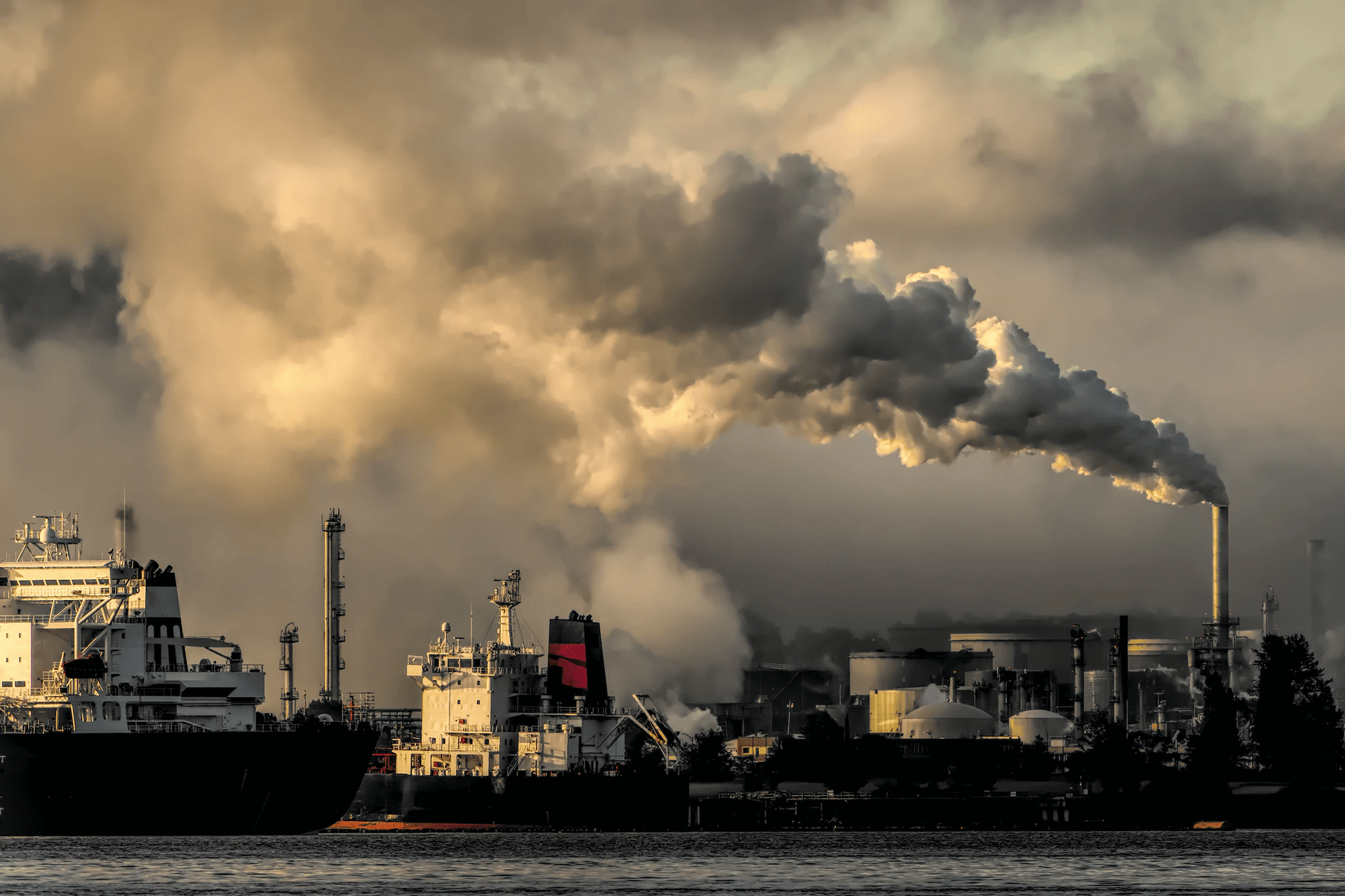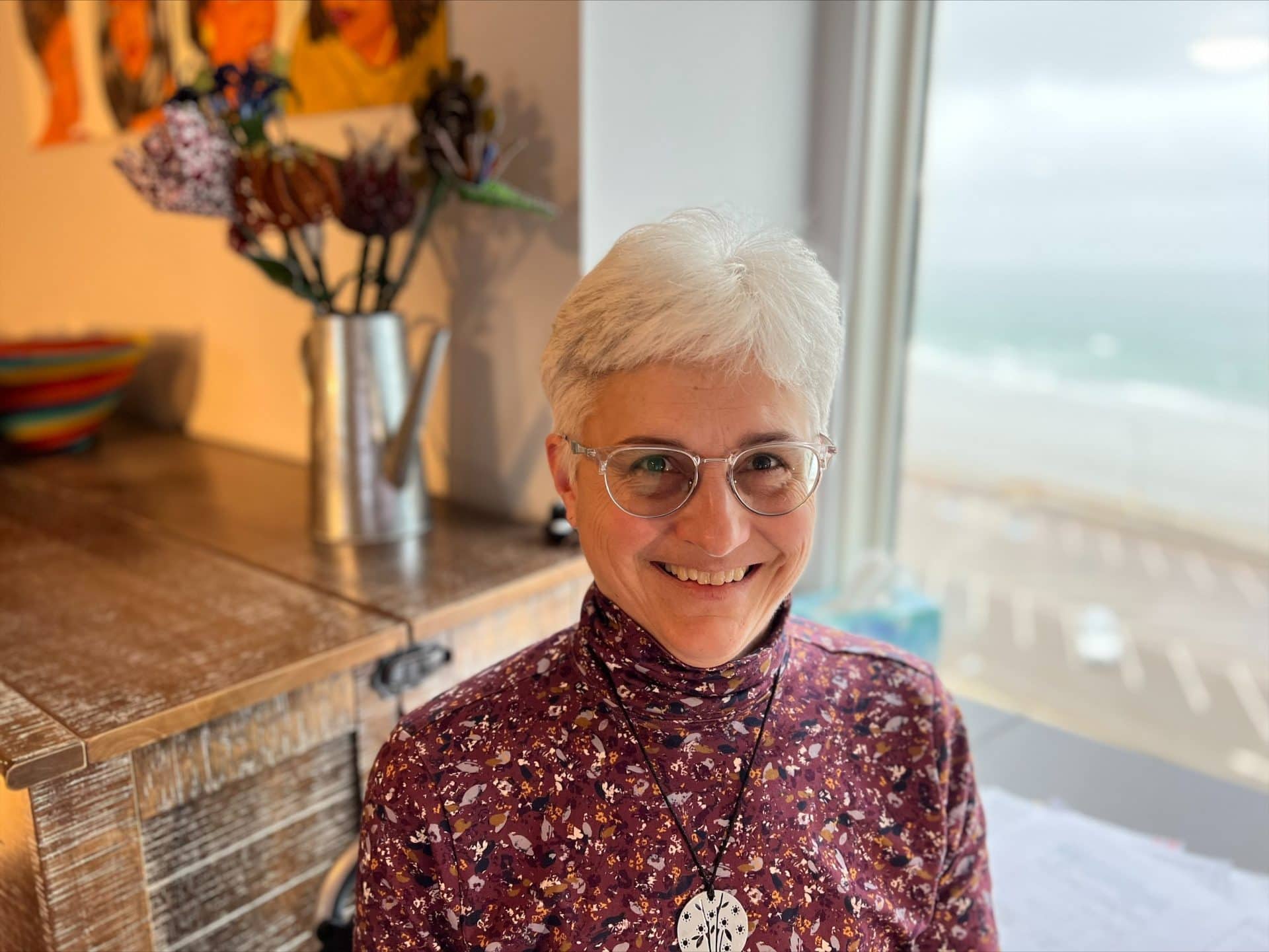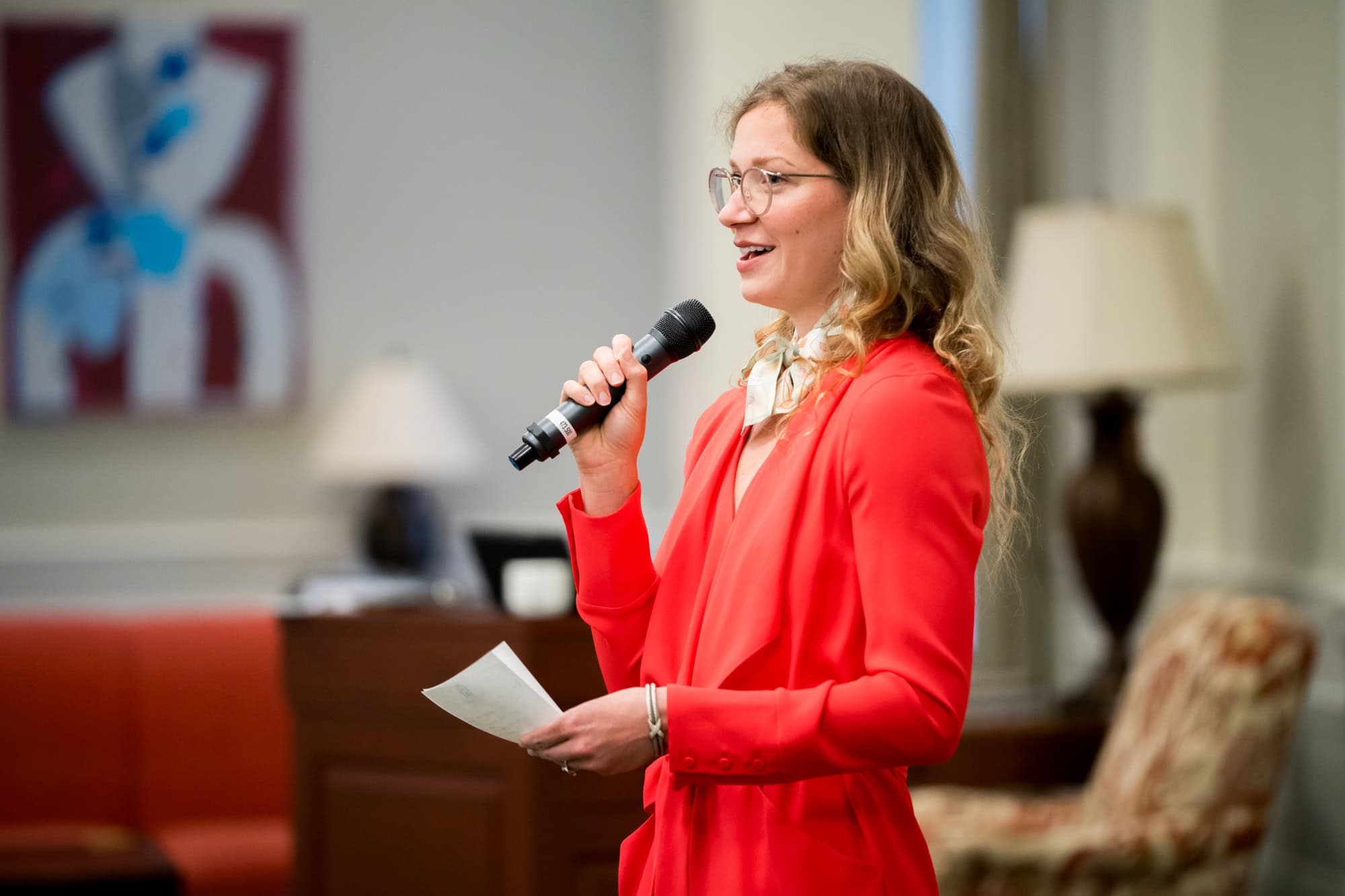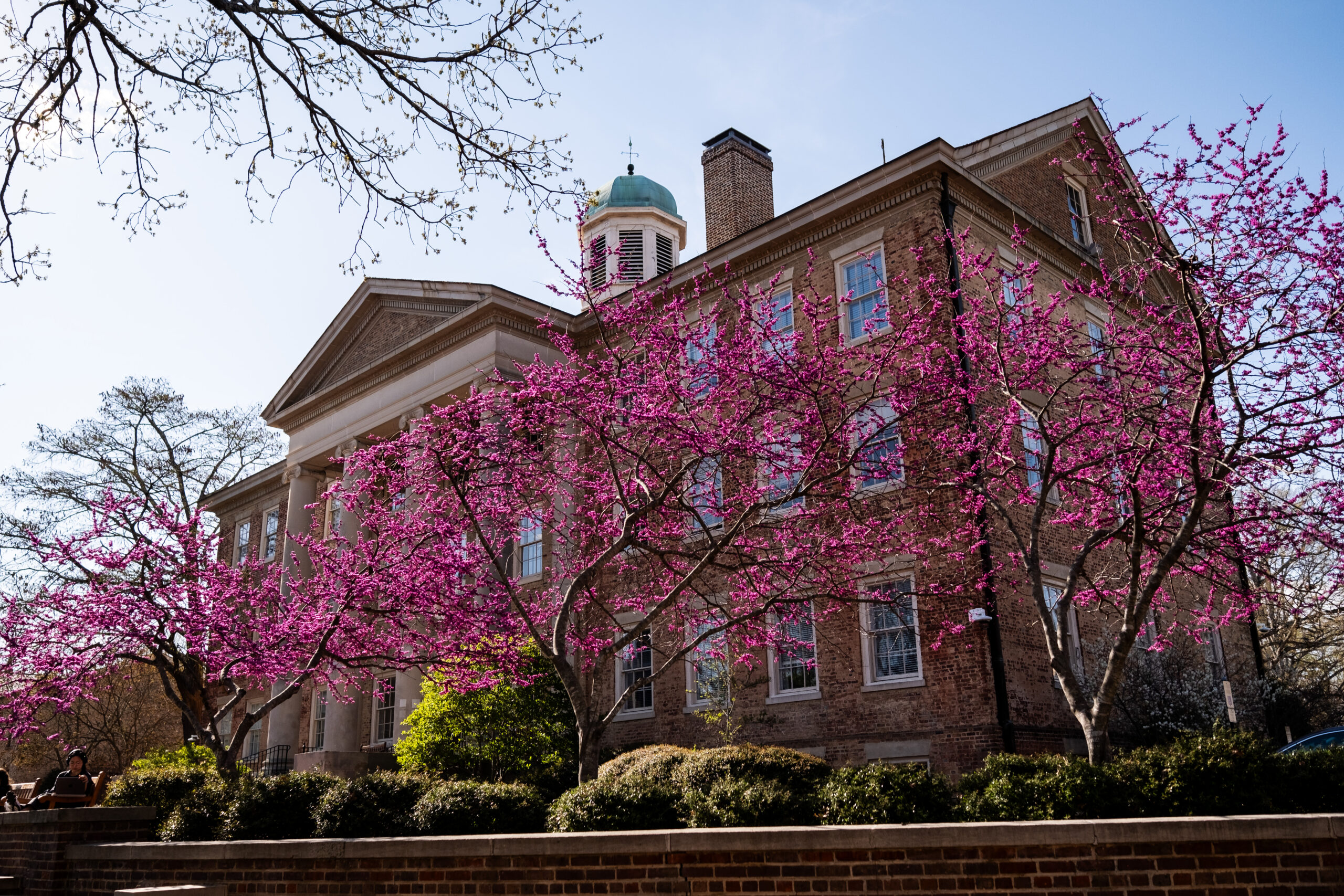
Photo by Chris LeBoutillier (via Unsplash)
At this year’s United Nations Climate Change Conference (COP27), four Morehead-Cain Scholars—Megan Lienau ’23, Benny Klein ’24, Asher Wexler ’25, and Grace Wolf ’25—are joining politicians, delegates, scientists, and activists from around the world to address the growing threats of the climate crisis.
Before the conference, Benny interviewed Kathy Mulvey ’88 on behalf of the Scholar Media Team to take a deep dive into what can be done to make corporations take responsibility for their role in warming the environment—an issue that is at the forefront of COP27.
About Kathy

Kathy Mulvey ’88
Throughout her career, Kathy has sought to create a safer, healthier, and more just world. At UNC–Chapel Hill, she joined student groups working toward nuclear disarmament. After graduating, she took a job as an organizer at Corporate Accountability International (then Infact) to expose and challenge the nuclear weapons industry. She helped build a campaign that got General Electric to stop producing and promoting nuclear weapons.
The alumna is now the Climate Accountability Campaign Director for the Union of Concerned Scientists (UCS), working to hold fossil fuel companies accountable for the climate harms associated with their products, business models, and deliberate deception campaigns.
Here are four strategies that Kathy and her team use to advance their climate goals.
Climate litigation: From personal to corporate responsibility
Thirty years ago, Kathy helped lead the campaign to hold major tobacco companies accountable for the harms their products caused to their customers, families, and society.
“Thanks to the tobacco industry’s marketing and public relations strategies, most people saw tobacco-related illness and death as an issue of individual choice and personal responsibility,” she said. “It was really important to shift that issue to one of corporate accountability, using the evidence that came out from internal documents showing that tobacco companies indeed manipulated nicotine in their products to levels intended to hook young people and maintain addiction.”
Tobacco companies were fully aware of what their products were doing to consumers, and “socializing the cost” only gave them cover for longer, she said.
Kathy sees parallels to the issue of climate change. ExxonMobil and other major oil and gas companies “knew the harm that their products posed to the climate” since at least the 60s, she said, pointing to the 1968 report to the American Petroleum Institute as an example. Researchers warned the oil industry that the release of carbon dioxide from fossil fuels could lead to “worldwide environmental changes.”
“These companies have done everything they can to lock in business as usual using fossil fuels and to limit our choices and our ability to select clean energy options,” she said.
Just as state and federal lawsuits helped address the tobacco industry’s devastating public health impacts and fraudulent conduct, litigation combined with investor pressure and public campaigns can force oil and gas companies and other major polluters to change their business practices, Kathy said.
One big hurdle to doing so, however, is proving how, and by how much, oil and gas companies contribute to climate change. But the solution is in the science.
The growing role of attribution science
Attribution science is a growing field of study that seeks to prove how human actions cause climate change, and it’s an area of knowledge that closely informs Kathy’s work.
“Attribution science examines the causal links between human activities, global climate change, and the impacts of climate change, such as how rising concentrations of heat-trapping gases in the atmosphere affect global average temperature or sea level rise, for example, or how changes in the global climate system affect the frequency and intensity of extreme events,” she said.
At the UCS, her team is working to attribute emissions and impacts to particular fossil fuel and cement companies. In collaboration with universities and other organizations, her colleagues have sought to quantify and trace data points such as global average temperature, rising sea levels, and ocean acidification to ExxonMobil, Chevron, BP, and Shell, among others.
Major oil, gas, and coal companies are already being sued by dozens of communities across the US for climate damages. According to Kathy, attribution science can inform ongoing and prospective climate litigation against the fossil fuel industry.
Fossil fuel divestment and shareholder advocacy
Before joining UCS, Kathy gained experience in the world of socially responsible investing. As the executive director of the Conflict Risk Network, Kathy used investment to promote peace and stability in areas affected by genocide and mass atrocities.
At UCS, Kathy promotes similar investment tactics to press oil and gas companies to reduce emissions in line with what science says is necessary to limit the worst effects fo climate change and to adapt their business models for a carbon-constrained world. In her role, she’s seen a dramatic rise of investor strategies since the Paris Climate Agreement. Investors with a combined total of more than $40 trillion in assets under management have now divested from the fossil fuel industry.
“By 2030, we have to reduce global warming emissions by about half. I think investors are feeling that urgency and are making decisions about where to invest in ways that will advance and catalyze the kinds of shifts that we need to get to a clean energy economy,” she said.
Many investors have joined forces to target the highest emitting companies—those that extract oil and gas and the utilities that burn them—to pressure them to align their business models with the goals of the Paris Agreement.
Initiatives like the Climate Action 100+, which involves more than 700 investors and has $68 trillion in assets under management, seek to drive the swift emission reductions and other corporate action needed to mitigate the worst effects of climate change, she said.
Combating disinformation
One more recent way that oil and gas companies have resisted change is by deploying disinformation campaigns to deceive the public about climate science and policy, according to Kathy.
“We know there’s a network of political interest groups, elected officials, corporations, lobbying groups, and social media platforms that are part of spreading disinformation,” she said, pointing out that spreading disinformation is intentional, unlike misinformation, which is shared in mistake.
To address disinformation, the UCS has compiled toolkits, explanation videos, and other materials on their website, although more work is always needed to address such a complex and ever-changing problem.
Despite the challenges, Kathy said she remains hopeful that solutions exist to spur an equitable transition away from fossil fuels, reckon with the unjust burden of the climate crisis on low-income communities and communities of color, and create a climate-safe future. Key moments, like the signing of the Paris Climate Accords at COP21, give her optimism that nations and companies can be made to change.
“We have the solutions available to make the transition to a clean energy system and economy, and we have the solutions and mechanisms and policy proposals to secure democratic decision-making and racial justice,” she said. “It’s really, really important to be engaging with and talking to people in your networks in a positive, visionary, and hopeful way.”
Megan and Benny will host an Instagram Takeover for Morehead-Cain on Friday, November 11, to share what it’s like to be at COP27, held this year in Sharm El Sheikh, Egypt (from November 6 through November 16).
Benny is a member of the Morehead-Cain Scholar Media Team and is a scholar host on Morehead-Cain’s Catalyze podcast. On your mobile device, you can listen and subscribe to Catalyze on Apple Podcasts or Spotify. For any other podcast app, you can find the show using our RSS feed.
About the Morehead-Cain Scholar Media Team
The Morehead-Cain Scholar Media Team is an extracurricular program and internship run by the Foundation’s communications team. Scholars of all backgrounds and class years collaborate to produce multimedia content on the topics and issues they’re passionate about, as well as support Morehead-Cain’s institutional communications.
Members cover the following beats, tied to Morehead-Cain’s departments: selections and recruitment, the scholar experience, development, and alumni engagement. Scholar-generated content is distributed across all of Morehead-Cain’s channels, including social media (Facebook, LinkedIn, Twitter, Instagram, and YouTube), the Catalyze podcast, email newsletters, and the website (www.moreheadcain.org). The team’s audience comprises more than 3,300 scholars and alumni and their constituents.
If you’re interested in learning more about the Scholar Media Team, contact the communications team. Participation is a semester-long commitment.


